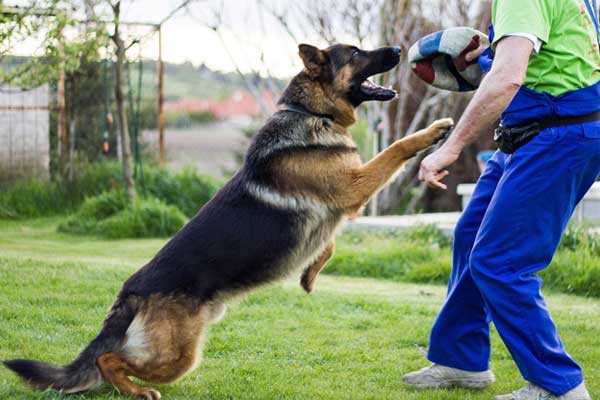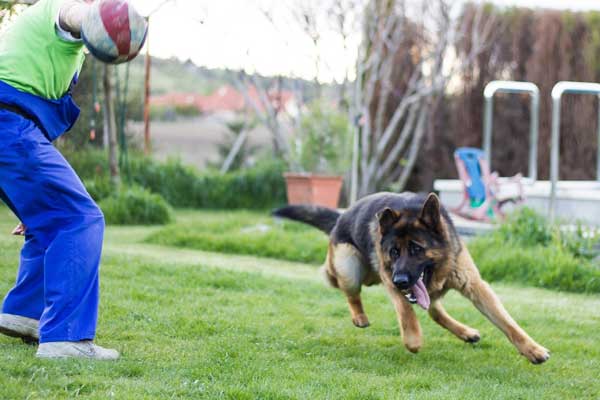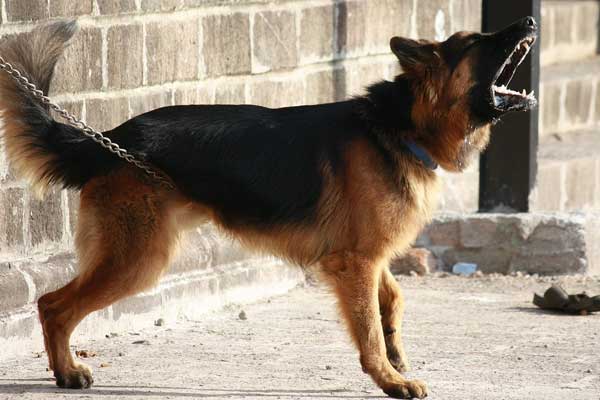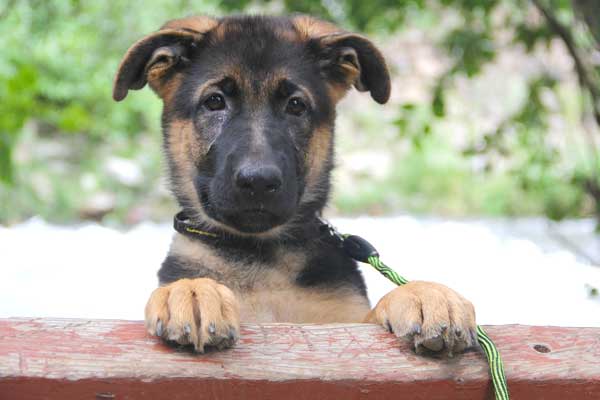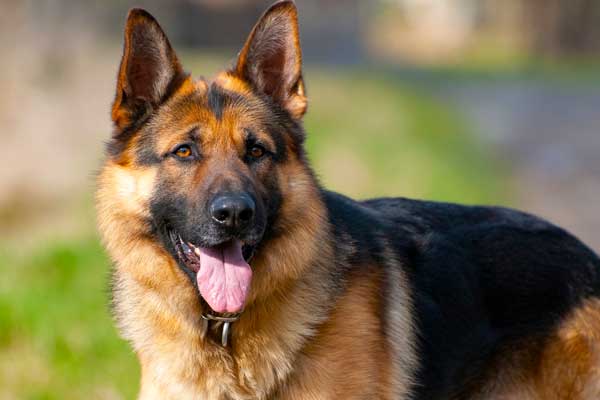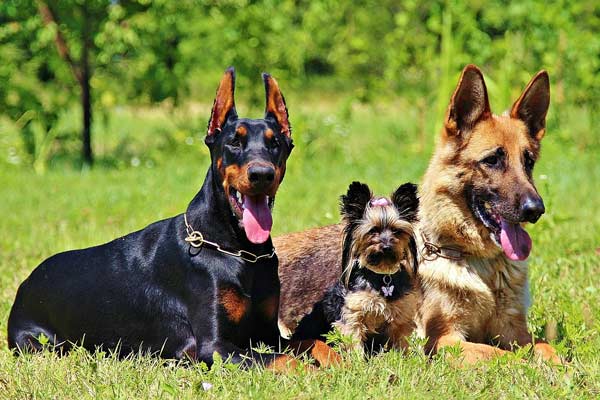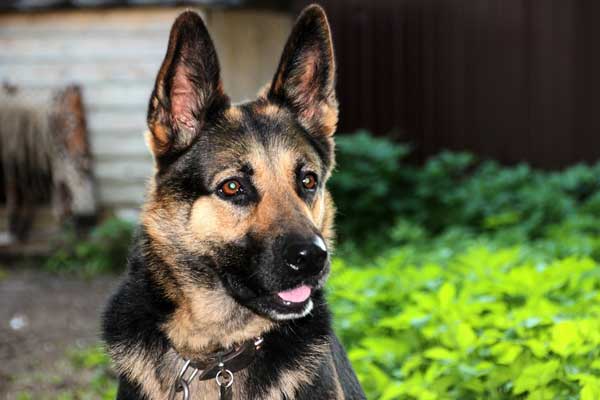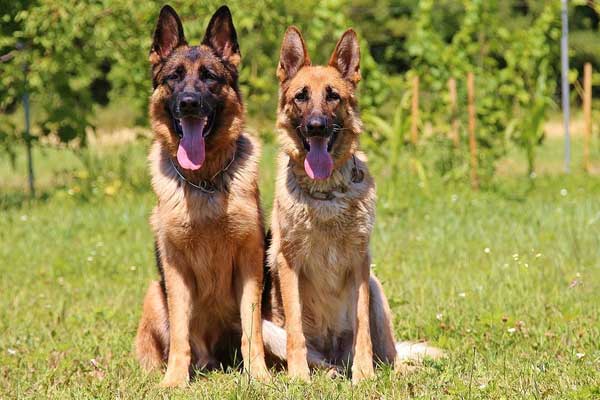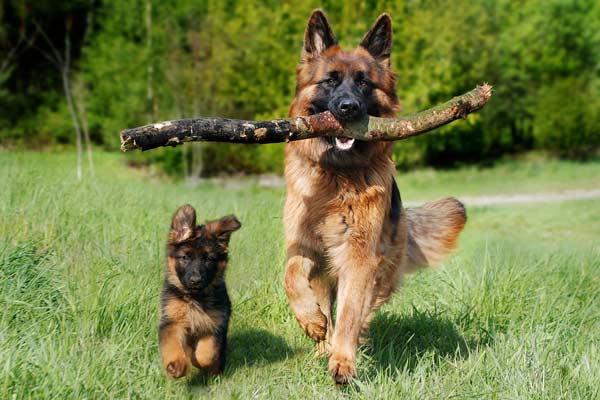Are German Shepherd Protective as Everyone Thinks?
Are German Shepherds as protective as everyone claims? If so, is it something that all German Shepherds possess, and if not, what traits make them stand out as protective breeds?
In this article, we’ll explore the truth behind German Shepherds’ protective nature and discuss the pros and cons of this trait.
Are German Shepherds Protective?
The answer to this question is yes! German Shepherds are very protective and have been used as guards, search, and rescue dogs for centuries. They are brilliant, loyal, and have an innate sense of protection. They are also very territorial and protect their family from perceived threats.
German Shepherds were bred to be guard and shepherd dogs, so their protective nature is deeply embedded in their DNA.
They are naturally alert and bark to alert their family of danger or strangers entering their home. Several traits make German Shepherds protective, such as their protective instincts, size, strength, and intelligence.
Signs of a Protective German Shepherd
A protective German Shepherd will show several signs that they are being protective. The most apparent sign is barking. German Shepherds are highly vocal and bark when feeling threatened or sensing danger.
They may also stand before their family as a barrier to protect them from potential threats. Other signs of a protective German Shepherd include pacing back and forth, raised hackles, and even growling.
Why Are German Shepherds So Protective?
German Shepherds have a strong instinct to protect their family and territory. They are also strong dogs. Their size and strength make them well-suited for protection and guard duty.
German Shepherds are also intelligent and can easily recognize when a situation is dangerous. They are also highly alert and bark to alert their family of potential threats.
What Age Does a German Shepherd Become Protective?
German Shepherds typically become protective at around six months old. At this age, they are mature enough to understand their role as a guard and protector.
However, sometimes German Shepherds can become protective even earlier. They may start to show signs of protection at around three months old.
Are All German Shepherds Protective?
Not all German Shepherds are protective. Some may lack the natural protective instinct, while others may have been bred to be less protective.
It is important to remember that each German Shepherd is an individual and will have its unique personality and traits. It is up to the owner to decide whether or not their German Shepherd is protective.
How to Tell if Your German Shepherd is Protective?
There are many ways to tell if your German Shepherd is protective. One of the most obvious signs is barking. If your German Shepherd is barking at strangers or any perceived threats, then it is likely that they are being protective. Other signs include raised hackles, pacing, and growling.
Pros and Cons of German Shepherds’ Protectiveness
Like any trait, German Shepherds’ protectiveness has its pros and cons. They can alert their family of any potential threats and provide a sense of security.
On the downside, their protectiveness can also make them aggressive toward strangers and other animals. On the plus side, having a protective German Shepherd is beneficial regarding safety and security.
Training a German Shepherd to be Protective
It is possible to train a German Shepherd to be protective, but it should only be done with the help of a professional. Training a German Shepherd to be protective requires patience, consistency, and positive reinforcement. It is important to remember that a German Shepherd’s protectiveness should never be used to be aggressive or violent.
Reasons to Train a German Shepherd for Protection
German Shepherds are popular breeds for protection, thanks to their courage, intelligence, trainability, and loyalty.
Training a German Shepherd to be protective is a great way to ensure your pup is ready to protect you and your family. No matter the situation, you can trust that your German Shepherd will be prepared to act when needed.
Potential intruders or aggressors will be quickly put on notice that your pup is ready and willing to protect you and your family. This alone can be enough to deter them from any malicious activities.
In addition, a well-trained German Shepherd will be an excellent deterrent.
Finally, training a German Shepherd for protection can be a great bonding experience for you and your pup. It will allow you to build a trusting relationship with your puppy and help you better understand your pup’s personality.
Best Practices for Training a German Shepherd for Protection
There are several best practices to remember when training a German Shepherd for protection.
First and foremost, ensuring your pup is healthy and well-fed is important. A healthy pup is a happy pup who is more likely to take to training.
Next, you should always use positive reinforcement when training your German Shepherd. Positive reinforcement is the best way to encourage your pup to learn and reinforce behaviors you want them to repeat. Rewarding your puppy when they’re doing the right thing and never punishing them for mistakes is essential.
It’s also essential to give your pup plenty of exercise and playtime. A tired pup is well-behaved and ensuring that your puppy gets the physical and mental stimulation they need is crucial.
Finally, it’s crucial to ensure your pup is socialized correctly. Socialization is essential in any pup’s training, as it helps them learn how to interact with people and other animals.
Training Your German Shepherd to Respond to Commands
One of the essential aspects of training a German Shepherd for protection is teaching them to respond to commands. This includes basic commands like “sit,” “stay,” and “come,” as well as more advanced commands like “guard” or “attack.”
Positive reinforcement and repetition are the best way to teach your pup to respond to commands. Use treats and praise to reward your puppy when they do what you ask, and be sure to repeat the command multiple times until they understand it.
It’s also essential to ensure your pup understands the difference between the commands. For example, if you tell them to “guard,” they should know that they should be alert and ready to protect you and your family but shouldn’t attack.
Training Your German Shepherd to Alert Strangers
Once your pup has mastered the basic commands, it’s time to teach them how to alert you to strangers and potential threats.
First, you should teach your pup to alert when someone comes to the door. Whenever someone knocks at the door, have your pup bark to let you know. Reward them with treats and praise when they do this correctly.
Once your pup has mastered this, you can move on to more advanced training. For example, you can teach your puppy to alert you to people or animals that they don’t know. Whenever they see a stranger, have them bark to let you know. Again, reward them with treats and praise when they do this correctly.
Safety Considerations When Training a German Shepherd
It’s important to remember safety when training a German Shepherd for protection.
First, you should always ensure that your pup is socialized correctly and that they understand the difference between friendly people and potential threats.
You should also ensure your pup is never left unsupervised with strangers, which could lead to a dangerous situation.
Finally, you should always ensure that your puppy is wearing a collar and adequately identified in case they get lost.
Conclusion
There are several best practices to remember when doing so, including using positive reinforcement, giving your pup plenty of exercise and playtime, and ensuring they are appropriately socialized.
It’s also important to remember safety when training your pup, as it can be dangerous.
Training a German Shepherd for protection can be a great way to ensure your puppy is ready to protect you and your family in any situation.
If you’re looking to maximize the protective capabilities of your German Shepherd, training them to be protective is a great way to ensure that your pup is ready for any situation.
With patience and dedication, you can ensure your puppy is always ready and willing to protect you and your family.

